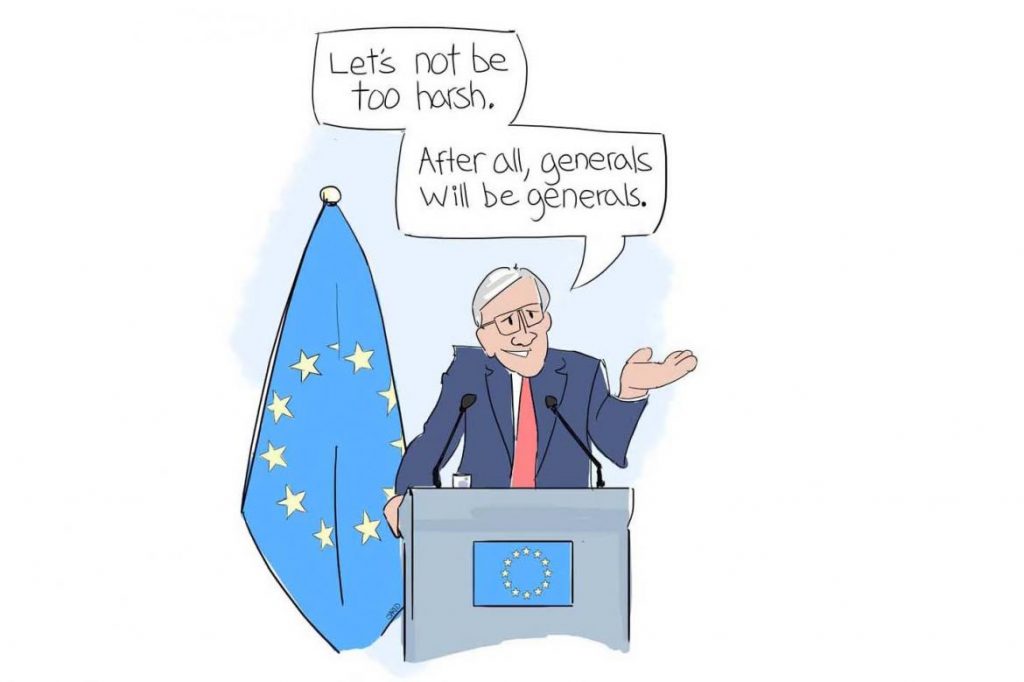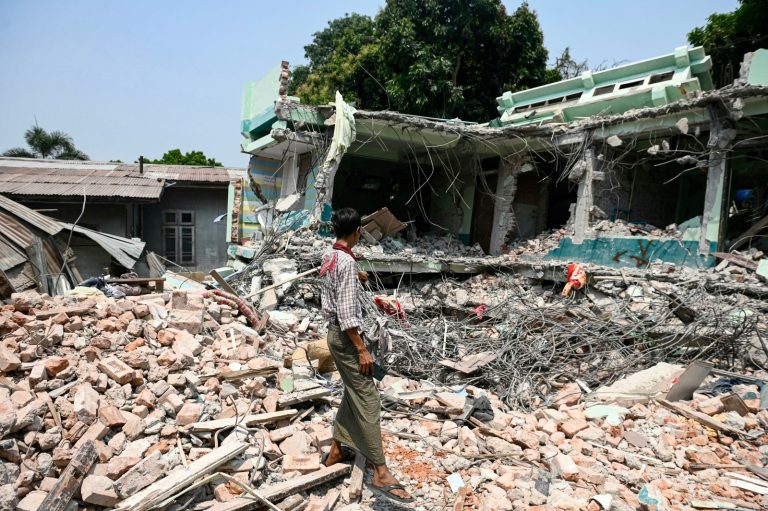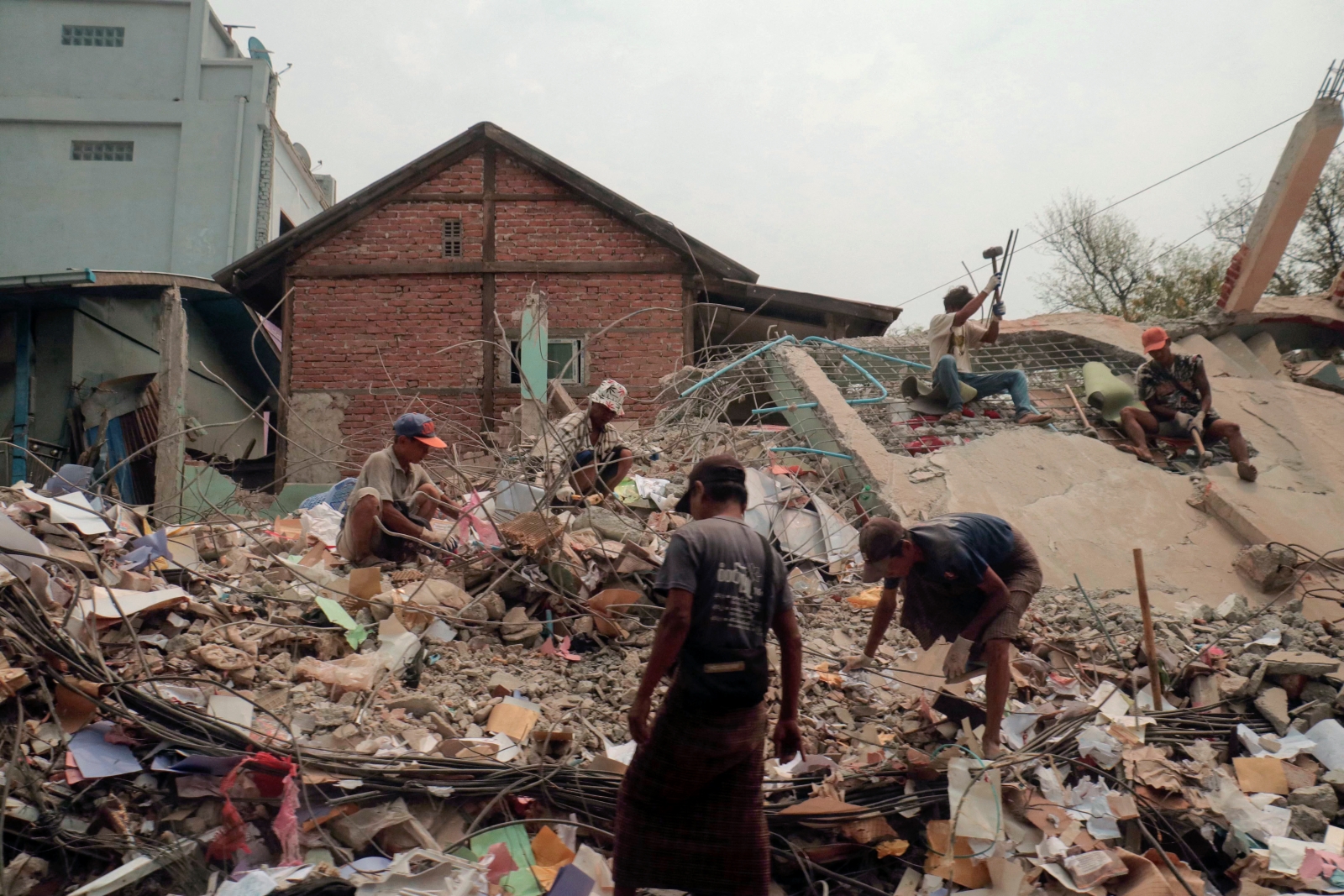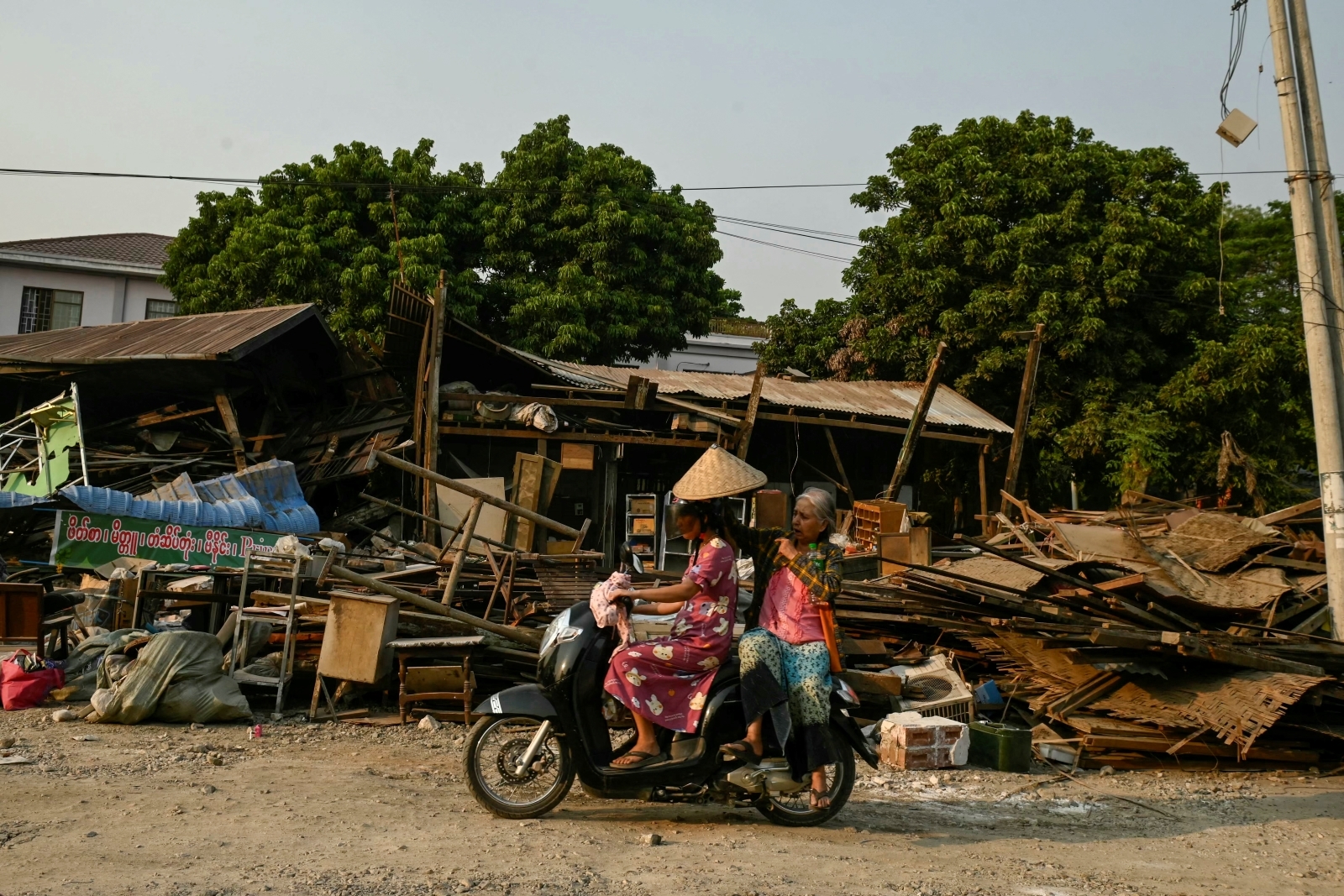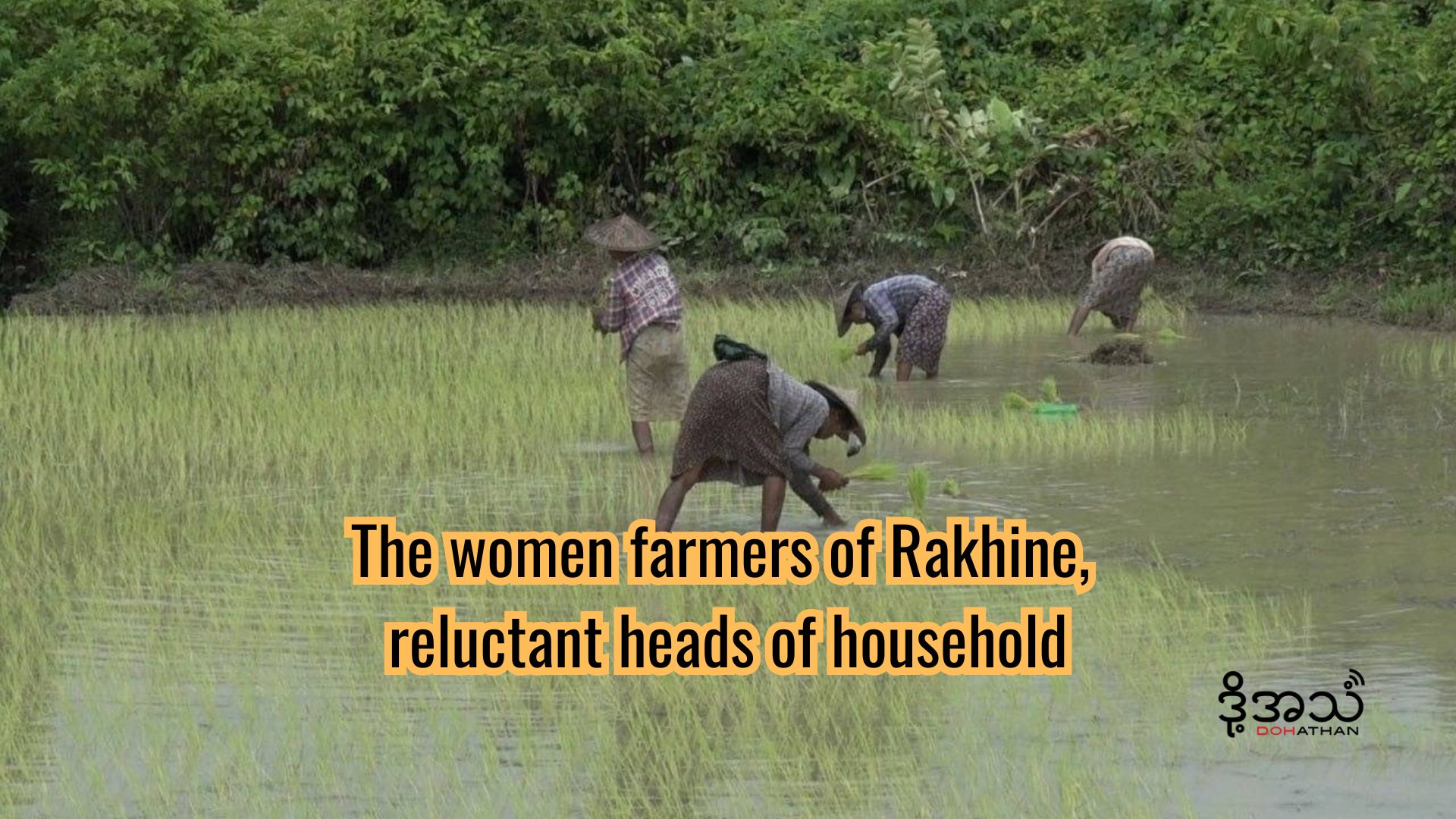When the European Union announced sanctions against senior military and police officials on June 25, a few names were conspicuously absent.
THE EU targeted seven individuals “because of their involvement in or association with atrocities and serious human rights violations committed against the Rohingya population in Rakhine State in the second half of 2017”, it said in a statement. This included the unlawful killings, sexual violence and the burning of homes (all allegations the military denies).
There was the former head of the Border Guard Police, Brigadier-General San Lwin, and the commander of the 8th Security Police Battalion. The leaders of the 15th Military Operations Command, 33rd Light Infantry Division and 99th Light Infantry Division were also targeted, along with Western Command chief Major-General Maung Maung Soe. Above them in the pecking order, former Bureau of Special Operations No 3 commander Lieutenant-General Aung Kyaw Zaw was also subject to an asset freeze and travel ban.
But that’s where it stopped. And really, there are only two people further up the chain of command: Commander-in-Chief Senior General Min Aung Hlaing and his deputy, Vice Senior General Soe Win.
Frontier does not necessarily advocate sanctions in response to allegations of abuses in Rakhine State. But if the EU accepts that sanctions are an appropriate measure, and that there is enough evidence to justify sanctions on the basis that human rights violations have been committed, it’s hard to understand how those at the top have escaped action.
In a report released two days after the sanctions announcement, Amnesty International detailed the level of control that Min Aung Hlaing and Soe Win would likely have had over Rakhine forces, based on military protocol and command structure.
Support more independent journalism like this. Sign up to be a Frontier member.
The report, “We will destroy everything”: Military responsibility for crimes against humanity in Rakhine State, Myanmar, makes a strong case that operations in northern Rakhine State were directed by the War Office in Nay Pyi Taw. It notes that specific orders or reports from field commanders are not necessary for establishing direct responsibility.
The EU has not publicly discussed why it decided not to sanction the military’s two most senior officers, given that it clearly believes abuses occurred in northern Rakhine State. Was it a lack of evidence of responsibility? Or was it a political decision – concern, perhaps, that sanctions would harm the EU’s political or economic interests, or perhaps upset the delicate relationship between the civilian and military arms of Myanmar’s government?
This may have been a final warning for the military leadership: take genuine steps to investigate these serious allegations, and ensure that peace, stability and human rights are upheld for all, including the Muslim Rohingya community, or face the consequences.
The EU ended the statement by saying that it would “keep its decision under constant review, including the possibility of further targeted restrictive measures”. It called on the government and military to “ensure that security, the rule of law and accountability prevail” across the country, including in Rakhine State. That certainly leaves open the door for further sanctions to be applied.
How is the military likely to respond to last month’s sanctions decision? So far there’s been little indication that it is adjusting course in any way. Public denial of any wrongdoing and emphatic justification of all actions taken since August 2017 remain the order of the day.
Those tempted to look at the removal of senior commanders in Rakhine as a sign that those responsible are being punished for their role should think again. Yes, at least three of those sanctioned – Aung Kyaw Zaw, Maung Maung Soe and San Lwin – were sacked towards the end of 2017. But there has been no suggestion that any of them were removed because of the abuses that allegedly occurred on their watch. If anything, it seems to be quite the opposite.
The EU announcement suggests the international community wants to do all it can to avoid going down the path of sanctions that target the military leadership. This may have helped Min Aung Hlaing and Soe Win avoid punitive measures for now. But until they start addressing the concerns of the international community – on citizenship, a genuine investigation and hate speech – calls for stronger action are only going to grow louder.


